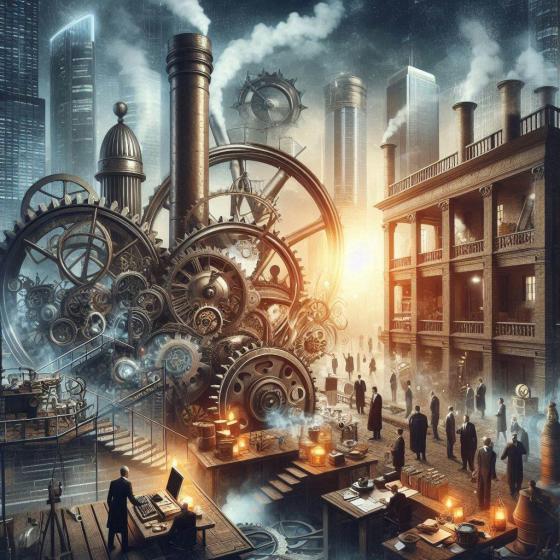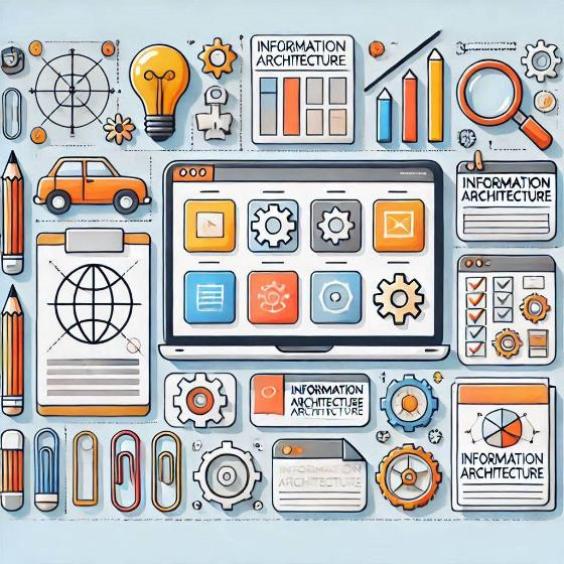The Industrial Revolution and Accounting: Transformation and Professionalization
The Industrial Revolution, which began in the 18th century, marked a before and after in world economic history. This period of drastic change not only transformed production and trade, but also had a profound impact on the way finances were managed and recorded. Accounting, which had been a relatively simple discipline until then, was forced to adapt to the new realities of a rapidly industrializing world. In this article, we will explore how the Industrial Revolution transformed accounting and led to the professionalization of this discipline, giving rise to practices that are still in force today.

The Industrial Revolution and its Impact on Accounting
Before the Industrial Revolution, accounting was limited mainly to keeping a basic record of commercial transactions. Businesses were mostly small and family-owned, with simple accounting systems that did not require advanced techniques to maintain financial control. However, with the arrival of the Industrial Revolution, all this changed.
Industrialization brought with it the emergence of large factories, companies with hundreds or thousands of employees, and mass production that required much more rigorous control of costs, income, and profits. This demanded a level of precision and organization in accounting that had not been seen before.
Industrial companies needed to keep detailed control of a multitude of factors: the cost of raw materials, workers' wages, machinery maintenance, and product distribution, among others. This complex financial framework drove the evolution of accounting, which had to develop new methods to manage the growing amount of financial data.
Appearance of the First Large Accounting Books
With the expansion of companies and the complexity of their operations, the need arose to keep more detailed and organized records. This gave rise to the first large accounting books, which were exhaustive records of all financial transactions of a company. These books included sections dedicated to specific accounts, such as accounts receivable, accounts payable, inventories, and capital, which allowed entrepreneurs and managers to have a clear and precise view of the financial status of their businesses.
The use of large accounting books also facilitated auditing and internal control, aspects that were becoming increasingly important in a world where companies were beginning to be listed on stock exchanges and needed to demonstrate their solvency and good financial management to investors. This was a crucial step towards the professionalization of accounting.
The Professionalization of Accounting
The growing complexity of the industrial economy not only required improvements in accounting techniques, but also drove the professionalization of accounting as a discipline. Before the Industrial Revolution, accountants were often employees without specific training, who learned the necessary skills on the job. However, with the increase in accounting demands, the need arose for trained and certified accountants who could manage the complex finances of large industrial companies.
This process of professionalization was marked by the creation of accounting organizations, such as the Institute of Chartered Accountants of England and Wales, founded in 1880, and the subsequent creation of accounting standards and principles that standardized practices in the industry. Accountants began to be seen as essential professionals for business success, responsible not only for keeping accurate records, but also for advising companies on financial and strategic matters.
Innovations in Accounting
In addition to professionalization, the Industrial Revolution also drove several innovations in accounting. The need to manage large volumes of financial data led to the development of new tools and techniques, such as cost accounting, which focused on calculating the real cost of producing goods and services. This allowed companies to determine their profit margins more accurately and set competitive prices.
Another key innovation was financial accounting, which focused on preparing financial reports for shareholders and investors. These reports provided a clear view of a company's financial performance, facilitating informed decision-making and promoting transparency in the market.
The Industrial Revolution not only changed the way goods were produced and distributed, but also profoundly transformed accounting. This period marked the beginning of the professionalization of accounting and the development of new techniques and tools that have been fundamental to the growth of modern companies.
Today, tools like Inventarios1A continue this tradition of innovation in accounting, integrating the lessons learned during the Industrial Revolution to offer advanced financial management and inventory solutions that enable companies to remain competitive in an increasingly complex world.





